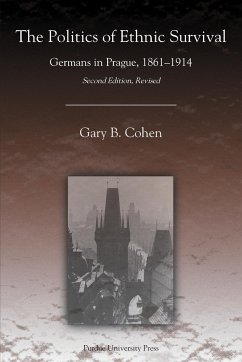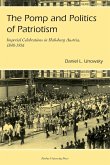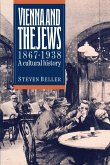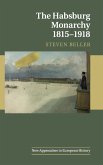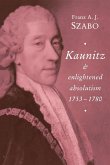This book examines how one of Imperial Austria's principal ethnic conflicts, that between Czechs and Germans, developed in one of the major cities during the era of industrialization and urban growth. It shows how the inhabitants of Prague, the capital of Bohemia, constructed and articulated ethnic group loyalties and social solidarities over the course of the nineteenth century. The German-speaking inhabitants of the Bohemian capital developed a group identification and defined themselves as a minority as they dealt with growing Czech political and economic strength in the city and with their own sharp numerical decline: in the 1910 census only seven percent of the metropolitan population claimed that they spoke primarily German. The study uses census returns, extensive police and bureaucratic records, newspaper accounts, and memoirs on local social and political life to show how the German minority and the Czech majority developed demographically and economically in relation to each other and created separate social and political lives for their group members. The study carefully traces the roles of occupation, class, religion, and political ideology in the formation of German group loyalties and social solidarities. The social relations which bound together the members of the German-speaking minority and the social boundaries which separated them from the Czech majority at the end of the nineteenth century proved to be selective, and considerable contact went on across the lines in many facets of individuals' everyday life. As the German minority developed a shared group life, what came to define them and to separate them from the Czech majority was a shared Austro-German ethnic and national loyalty, an Austro-German national liberal ideology, the defense of common middle-class and lower-middle-class social and political interests, and a shared German public life. Both German-speaking Catholics and Jews could share in the sense of German community and group solidarity, provided they upheld middle-class liberal values. The bonds of community for the middle-class and lower-middle- class Germans in Prague established in the 1860s tended to exclude German-speaking wage laborers and lower middle class radical nationalists, who might challenge liberal national values. Despite all the efforts to strengthen German community solidarity and combat assimilation of German-speakers with the Czech majority from the 1880s to after 1900, the organized German community could do little to prevent the absorption of working-class German-speakers into the Czech population of the industrial districts.
Hinweis: Dieser Artikel kann nur an eine deutsche Lieferadresse ausgeliefert werden.
Hinweis: Dieser Artikel kann nur an eine deutsche Lieferadresse ausgeliefert werden.

